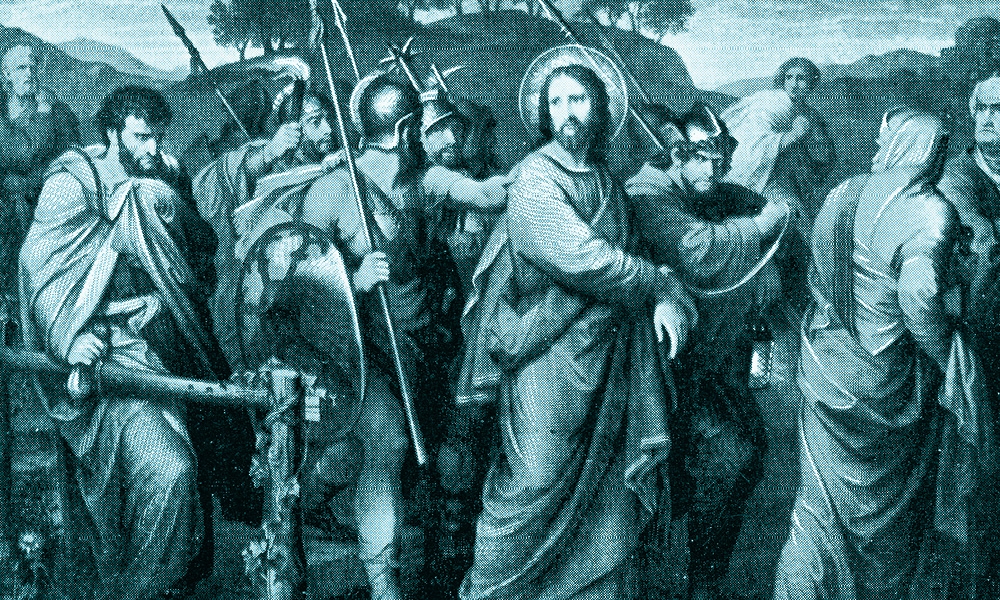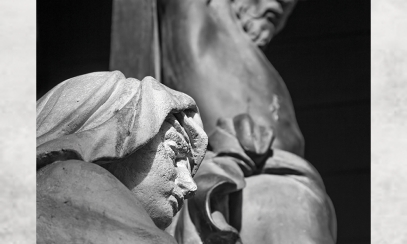
Crime and punishment
Getting your Trinity Audio player ready...The Catholic Church teaches important truths about our criminal justice system, complex as it is. The morality of right and wrong is written on our hearts (Romans. 2:14-15) , and each person bears responsibility for their actions. The Decalogue reveals fundamental laws to protect the common good – “You shall not kill … commit adultery … steal … bear false witness” (Exodus 20:13-16).
The Catholic Church teaches important truths about our criminal justice system, complex as it is. The morality of right and wrong is written on our hearts (Romans. 2:14-15) , and each person bears responsibility for their actions. The Decalogue reveals fundamental laws to protect the common good – “You shall not kill … commit adultery … steal … bear false witness” (Exodus 20:13-16).
Jesus confirms the Decalogue (Matthew 19:18) while emphasizing the inalienable dignity of both victim and offender as children of God. The Good Samaritan binds the wounds of the assault victim, though a stranger, and provides for his recovery. Jesus—himself a prisoner--proclaims visits to the imprisoned as acts of corporal mercy (Matthew 25:36). The thief on the cross, the prodigal son, the woman caught in adultery, find forgiveness through contrition.
The state has the right to enact laws to protect persons, communities, and the culture of life, and has the obligation to punish lawbreakers commensurate with the gravity of the crime. The purpose of punishment is not vengeance; Jesus rejects an eye for eye as a principle of justice (Matthew 5:38). Society must be protected from those who would do violence to its members, but punishment should be restorative, to deter further crime, to rehabilitate the offender who can expiate their crime through penitence, and to reestablish public order. It must allow the prisoner to reintegrate into the community, and advance the healing of the victim, which can include restitution, and whose trauma should not be overlooked in a single-minded pursuit of a criminal conviction.
It is in this context that the Church’s call for abolition of capital punishment should be understood. The death penalty is inadmissible because “more effective systems of detention have been developed, which ensure the due protection of citizens but, at the same time, do not definitively deprive the guilty of the possibility of redemption” (Catechism of the Catholic Church 2267 ). (Readers might be interested to know that Michigan was the first jurisdiction in the world to formally abolish execution as a legal punishment, in 1846.)
In Responsibility, Rehabilitation, and Restoration: A Catholic Perspective on Crime and Criminal Justice (2000), the U.S. bishops applied Catholic social teaching to call for reform of our system of criminal justice. The United States has the highest incarceration rate in the world, at great financial cost. What is the effect on the family when imprisoned fathers and mothers are removed from caring for their children for years at a time? How to address poverty, discrimination, and educational deficiencies that contribute to a culture of violence and unsafe neighborhoods? The bishops expressed concern that our nation uses incarceration to confront social issues, such as mental illness and substance abuse, better treated with remedial programs, and employs widespread detention of immigrants. Likewise, the bishops cautioned about rigid policies such as mandatory sentences and “three strikes you’re out.” The family is the fundamental cell of society, yet our justice system, when applied mechanically, excludes family members, who provide the first places for victims to receive healing and to reengage relatives returning from prison.
The criminal justice system also affects police officers, prosecutors and defense attorneys, judges, probation and correction officers, and witnesses, sometimes adversely. (See sidebar as to “Doing Justice and Loving Mercy” reconciliation conferences in Michigan.)
Restorative justice demands mercy. Mercy does not replace the need for correction but is an essential component in dispensing justice. In his 1980 encyclical, Dives in Misericordia (Latin for Rich in Mercy), Saint John Paul II writes “The fundamental structure of justice always enters into the sphere of mercy. Mercy, however, has the power to confer on justice a new content, which is expressed most simply and fully in forgiveness.”



